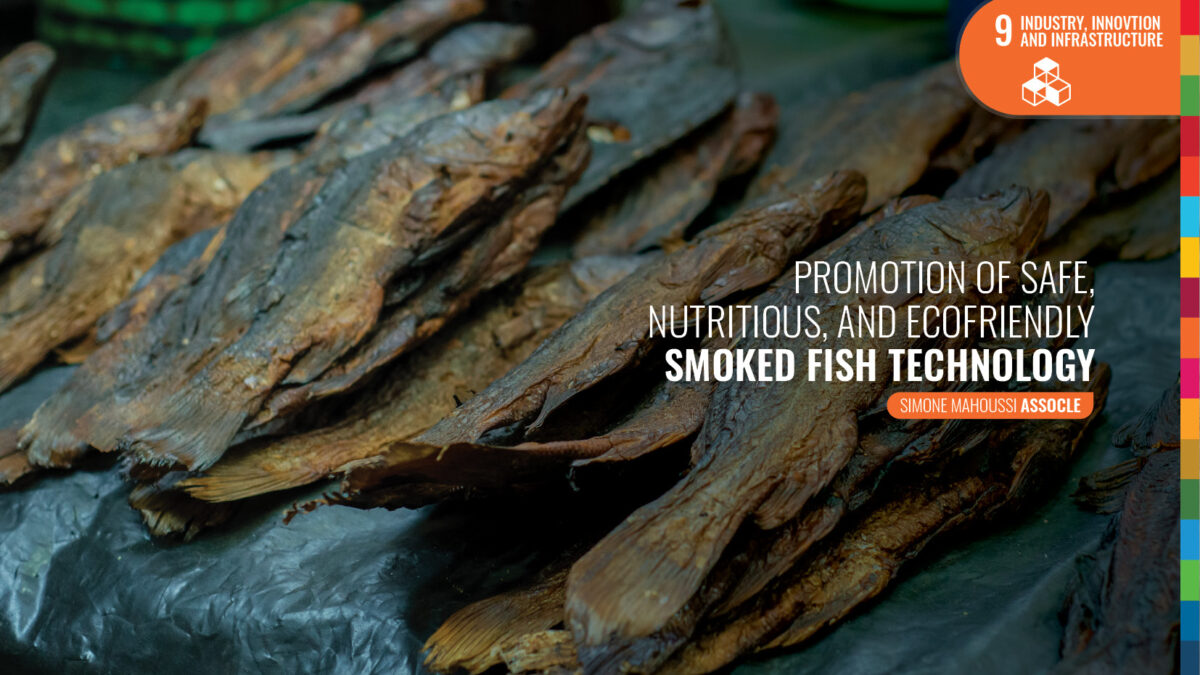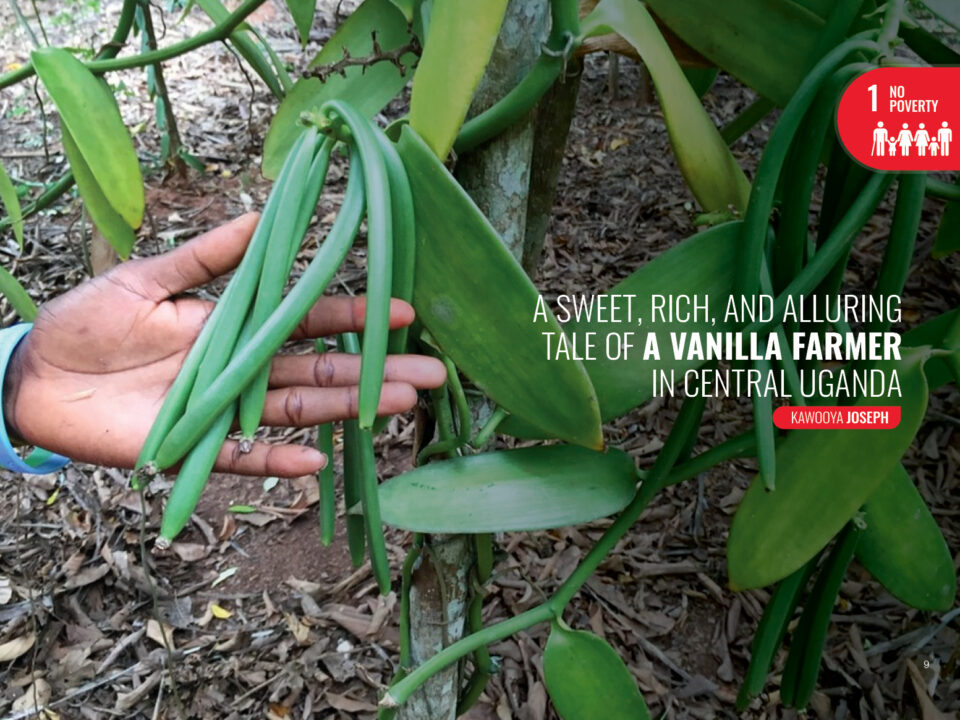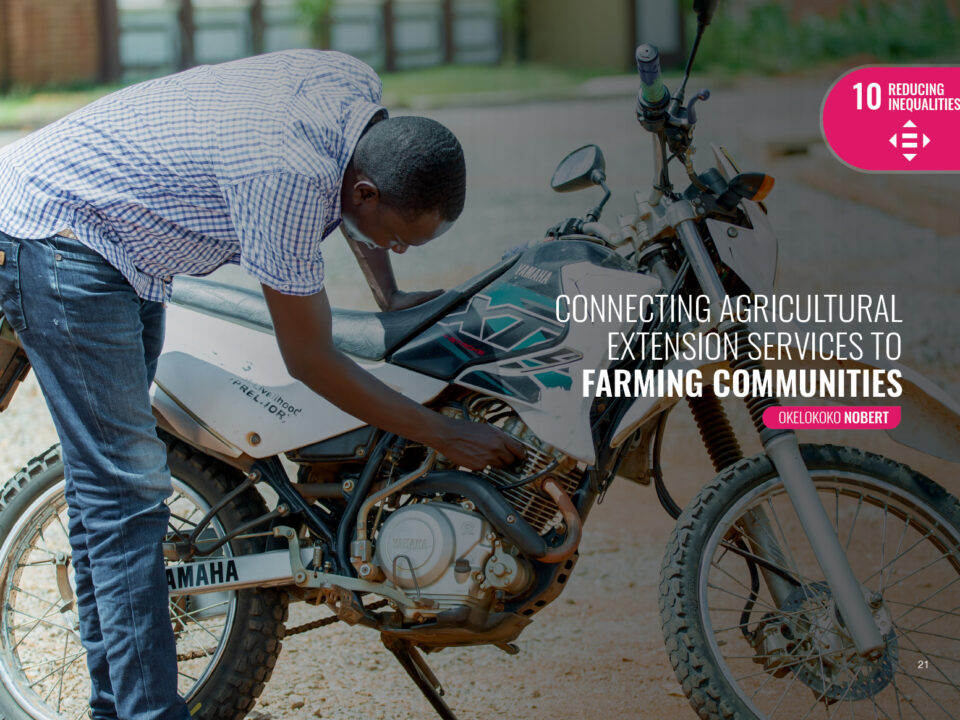Promotion of Safe, Nutritious, and Ecofriendly Smoked Fish Technology in Benin
The cultural transition from a French-speaking country to an Anglophone country did not deter Mahoussi Simone Assocle, a TAGDev/RUFORUM beneficiary traveling from Contour, Benin. Mahoussi, a passionate food scientist and nutritionist with four years of experience in nutrition, processing, and quality control of food products, is the founder of “Benin AgroTrans,” an innovative social enterprise that produces delicious and safe smoked fish while adhering to the principles of green economy. She promotes the use of renewable energy equipment, biodegradable packaging, and a natural preservative (spices) through this technology.
Mahoussi was inspired to find an eco-friendly solution after witnessing her mother’s numerous customer complaints resulting from the use of traditional smoking fish technology specifically the use of wood. Given that fish is a staple food in Benin, the need to improve its quality and shelf life compelled her to pursue her research further.
Fish conservation remains a common issue in tropical regions due to a lack of adequate infrastructure, technology, and environmental and climatic conditions that contribute to spoilage. The traditional wood smoking method is primarily used in the country for fish preservation. This technique, however, gives the smoked fish a two-day shelf life. The fish which is not packed is vulnerable to a variety of hazards, lowering the quality of the product and increasing food insecurity.
Furthermore, poor microbial quality, poor hygiene, and the use of wood, which emits a lot of smoke on the fish, leave some cancerogenic residues, affecting the health of fish processors and the environment. It also shortens the product’s shelf life and makes it unsafe for human consumption. Benin AgroTrans improves the technology of smoked fish processing in Benin and using appropriate corrective measures to provide Beninese with safe and nutritious fish products.
Mahoussi has a consistent supply of fresh fish that has been thoroughly cleaned and washed thanks to the collaboration with local fish farmers. The fish is then seasoned with spices, which are essential for increasing shelf life. It is then marinated for about 30 minutes to allow the spices to penetrate. Following that, the rolling process is used to allow the water to dry out, which usually takes about half an hour. The fish is then placed in the solar oven, where it is constantly monitored for nearly two hours. After that, the fish is allowed to cool for fifteen minutes before being packaged in biodegradable packaging and labeled as ready to sell.
The company employs four people: two women and two men who assist with fish cleaning, washing, processing, and delivery. As a result, the business has impacted livelihoods by employing over 500 households with a minimum of three family members. In Western Benin, the business has an indirect impact on over 1500 community members who have increased their nutritious food intake.
The goal of this initiative was to reduce the use of wood and increase the use of solar equipment for fish smoking. Mahoussi says she is looking forward to working with local hotels and sensitizing other fish smokers throughout Benin to further protect the environment and promote nutritious feeding in households.
The absence of a nearby water source poses a challenge because they must travel a certain distance to collect water, which is a critical component of their manufacturing process. There is a need to obtain cutting-edge cleaning materials because what they are currently using is rudimentary and the workers occasionally cut themselves, slowing down their work.
The demand for fish has also increased, putting a strain on their current production capacity, and necessitating the installation of more solar ovens. Mahoussi would also like to digitize her business’s marketing and possibly have a website in place.
As a TAGDev/RUFORUM scholar, back in 2019, Mahoussi was barely able to speak and understand English when she arrived in Egerton, Kenya for the student orientation week. Mahoussi considers herself extremely fortunate to have had a tutor who assisted her in learning English, allowing her to complete her course and graduate among the top performers with a first-class degree. Her excellent command of the English language has also enabled her to work with international organizations where she uses her knowledge and skill to support rural community transformation and development.
These Stories are a result of the documentation from the RUFORUM and Mastercard Partnership under the TAGDEV Project, Gulu University: https://ruforum.wordpress.com/category/tagdev-project/.




